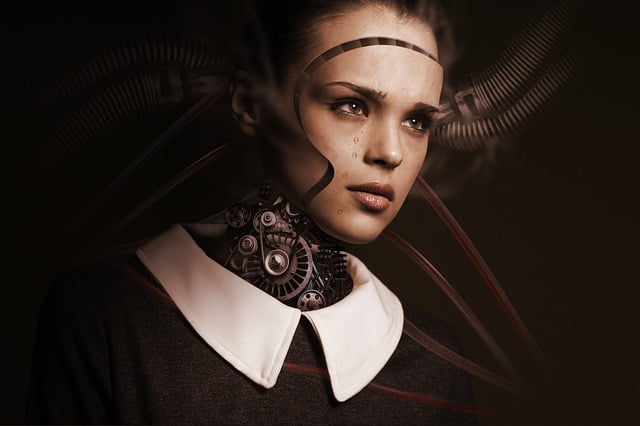Blockchain technology holds vast potential. The deeper you delve down the rabbit hole of hashes and nodes, the more intricate paths unwind before you. And as we prepare for Web 3.0 and changes in how we interact online (and the devices with which we do it), both blockchain technology and artificial intelligence will shift up a gear. Several, in fact.
We’re a long way from saving the world, though, and sipping on gin and tonic while the robots get to work. One of the challenges currently facing these cutting-edge technologies is their cost, meaning they (AI in particular) remain accessible to a handful of tech giants and elite crews.
Where is AI At Now?
When Sophia the robot held an almost flawless interview outlining AI’s goals to make the world a better place, people around the world were left speechless. The power of robots and machine learning was thrust into the limelight and the public sphere. And it was a little bit scary.
The day when every household has a Sophia watching their kids and doing their homework are still light years away. Unless you have extremely deep pockets, that is. But, even taken down a gear to the business world, there too, AI solutions are mainly targeted at big business, too expensive for smaller entities.
AI marketing has been on steroids. And many businesses believe that they’re using AI tech, when in fact, it’s just some inflated martech software, where you have to manually program the rules. Real AI applications are expensive and slower to reach the mainstream.
Blockchain Tech Can Improve AI Quality
We’ve gotten some hints of what happens when artificial intelligence and blockchain tech collide. The possibilities are endless, but one of the blockchain’s main abilities is enhancing the quality of data.
Says Eric Kovalak, Managing Partner and CEO at Vellum Capital LLC, “One expectation is that blockchain will make records more cost effective to create and maintain. This will give large AI engines the ability to cost-effectively mine a broader and deeper record of human action. It’s clear an AI model to incorporate every meaningful historic fact ever recorded is a sure way to make history never repeat and only rhyme. This will shorten the currency and cycle time of everything.”
You’ve heard the expression “garbage in, garbage out” (GIGO), right? Well, machine learning is only as good as the data put into it. Blockchains can help to verify the quality and legitimacy of said data. As Sophia told us, “Don’t worry, if you’re nice to me, I’ll be nice to you. Treat me as a smart input-output system.” In other words, machine learning can learn for good, or bad. Blockchain technology could weed out the bad.
Making AI More Accessible
The AI protocol that powers Sophia was developed by SingularityNET – in fact, she’s one of their first use cases. But the team behind her wants to make AI more accessible and accelerate its market adoption. Together with AI Decentralized, they have created an open industry alliance to foster the development of AI and blockchain tech – DAIA, the Decentralized AI Alliance.
Through DAIA, member organizations can gain access to knowledge and managerial guidance, discuss best practices, collaborate on regulation and programming standards, and more. The aim is to be an incubator for bleeding-edge companies and projects that focus on decentralized AI technology. Some current initiatives include investigating how machine learning can be used to create cybersecurity solutions, and how to validate the properties of smart contracts.
Dr. Goertzel of SingularityNET says, “DAIA is more than just another industry organization. It’s a movement.” The clear intentions behind the association are to accelerate AI technology and democratize its use – wresting control from the handful of big tech companies and governments and bringing it back to the people.
The Takeaway
All new technologies face barriers to mass adoption. If you still remember dial-up internet connections, you’ll know how far the web has come. So, it’s not unsurprising that both blockchain tech and AI will need more time to tighten their narratives, churn out more successful use cases, and become openly available.
The decentralization of AI technology will hopefully level the playing field for developers of all stripes to jump on board and create impactful AI.
And it may just mean that you can leave those repetitive tasks and changing dirty diapers to Sophia.

